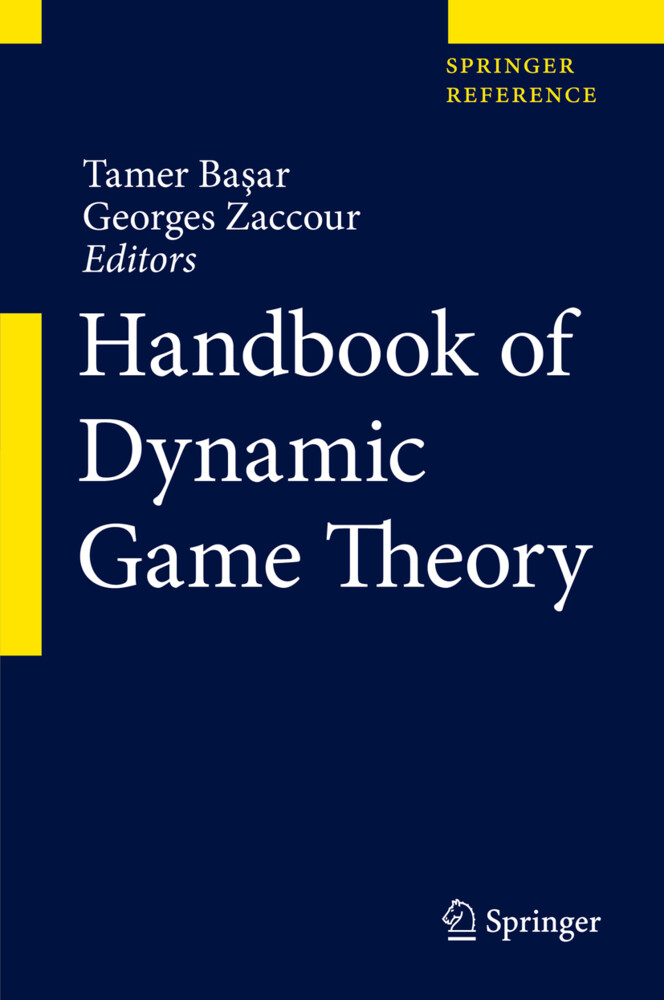
Zustellung: Do, 07.08. - Mi, 13.08.
Versand in 5 Wochen
VersandkostenfreiBestellen & in Filiale abholen:
This will be a two-part handbook on Dynamic Game Theory and part of the Springer Reference program. Part I will be on the fundamentals and theory of dynamic games. It will serve as a quick reference and a source of detailed exposure to topics in dynamic games for a broad community of researchers, educators, practitioners, and students. Each topic will be covered in 2-3 chapters with one introducing basic theory and the other one or two covering recent advances and/or special topics. Part II will be on applications in fields such as economics, management science, engineering, biology, and the social sciences.
Inhaltsverzeichnis
Part I: Theory. - Historical Overview. - Introduction to the Theory of Games. - Repeated Games. - Multistage Games. - Zero-Sum Differential Games. - Nonzero-Sum Differential Games. - Evolutionary Games. - Mean-Field Games. - Stochastic Games. - Learning in Games. - Network Games. - Cooperative Dynamic Games. - Numerical Methods. - Part II: Applications. - Part IIA: Economics. - Resource Economics. - Environment Economics and Climate Change. - Industrial Organization. Macroeconomics. - Energy Markets. - Health Economics. - Auctions. - Mechanism Design. - Part IIB: Management Science. - Operations Management. - Marketing. - Finance. - Accounting. - Part IIC: Engineering. - Robust Designs. - Aerospace. - Transportation. - Security. - Power Systems & Smart Grids. - Communications Networks (Pricing, Congestion Control, Routing, Flow Control). - Part IID: Pursuit-Evasion Games. - Part IIE: Biology (Applications of Evolutionary Game Theory). - Part IIF: Social Networks.
Produktdetails
Erscheinungsdatum
21. Juni 2018
Sprache
englisch
Seitenanzahl
1285
Herausgegeben von
Tamer Basar, Georges Zaccour
Verlag/Hersteller
Produktart
gebunden
Abbildungen
XIX, 1285 p. 135 illus., 48 illus. in color. In 2 volumes, not available separately.
Gewicht
2660 g
Größe (L/B/H)
237/166/66 mm
ISBN
9783319443737
Entdecken Sie mehr
Pressestimmen
`Handbook of Dynamic Game Theory is built as a solid building, seating sturdy foundations that hold the entire body up to the roof. Written by renowned experts, in a simple and clear language, and very rigorous, it is interesting for a wide range of readers both by the solidity of its theoretical construction and by the variety of applications presented. (Manuel Alberto M. Ferreira, Acta Scientiae et Intellectus, Vol. 4 (6), 2018)
Bewertungen
0 Bewertungen
Es wurden noch keine Bewertungen abgegeben. Schreiben Sie die erste Bewertung zu "Handbook of Dynamic Game Theory, 2 Teile" und helfen Sie damit anderen bei der Kaufentscheidung.









